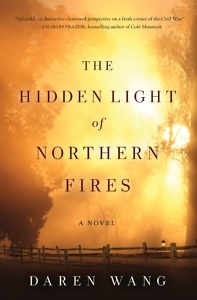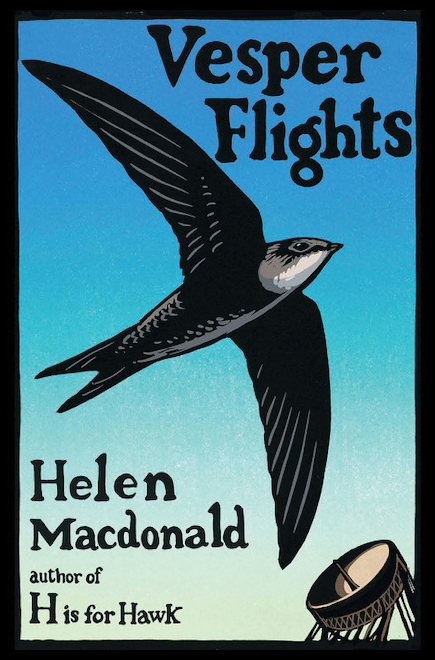A Stranger in Her Own House
Daren Wang’s The Hidden Light of Northern Fires continues a fine tradition in historical fiction
Daren Wang’s debut novel, The Hidden Light of Northern Fires, marks new territory in historical fiction by illuminating an unexpected tale of the Civil War. The novel is set in a nineteenth-century New York landscape rendered with affection, but Wang’s story of the abolitionist-minded Mary Willis makes it clear that the sin of slavery, and this country’s foundational racism, was never only a Southern thing.

The novel’s main action occurs in a real-life hamlet near the Canadian border. Town Line, New York, is an unincorporated place that, according to local lore, voted in 1861 to secede from the union and did not vote to rejoin again until 1946—a history that earned it the dubious designation of “The Confederacy’s Last Holdout.” Wang’s prologue recounts his own parents’ purchase of a 150-year-old farmhouse in Town Line, complete with a library which included “a diary with a broken clasp.” With four sons to educate, Wang’s parents traded the ancient library to a book dealer in exchange for a set of encyclopedias, but a childhood glimpse of the diary stuck with Wang and later led him to spend years researching the life of its author. Clearly The Hidden Light of Northern Fires is meant to feel like actual history, as if it might have happened largely the way it unfolds in the novel that follows.
In 1859, Mary Willis comes home from Alfred University to Town Line with a fresh diploma, a signed copy of Harriet Beecher Stowe’s Uncle Tom’s Cabin, and a bundle of anti-slavery tracts. Moving back into the family home with her widowed father and her hedonistic brother, she feels no fervor for her proper place as lady of the house. Her passion is for pointing out the evils of the South’s peculiar institution, and advice from a former college professor finally goads her into action: “Are you waiting for someone to give you permission? Are you waiting for someone to tell you to take a stand? That is not how revolutions work!”
That’s when Joe Bell, the novel’s other central character, enters the story. Joe is a runaway slave making the long journey north to freedom from Walnut Grove, West Virginia, to Town Line when Mary finds him, freezing and nursing a mauled leg, on the floor inside the Willis barn. With no way to get the injured man safely to Canada, Mary is forced to enlist her family—and many other reluctant residents of Town Line—to keep Joe secreted away from slave hunters and “Copperheads,” Northern sympathizers who oppose emancipation and favor a peace settlement with the South.
 Because Joe’s leg has to be amputated, Mary must hide him at the farm longer than expected. She pickaxes a hole in the house’s basement wall, behind a wardrobe, to create a space where Joe can spend his days unseen. And once she finds he can read, she brings him a book by Thoreau about a man going into the woods to make a little place just for himself. Joe, Wang writes, “read that one again and again, and the pond, the green meadow, and the little shanty started to show up in his dreams.” Visiting Joe in the evenings, Mary begins to grasp her own many privileges as she listens to Joe’s simple desires for what his freedom could be.
Because Joe’s leg has to be amputated, Mary must hide him at the farm longer than expected. She pickaxes a hole in the house’s basement wall, behind a wardrobe, to create a space where Joe can spend his days unseen. And once she finds he can read, she brings him a book by Thoreau about a man going into the woods to make a little place just for himself. Joe, Wang writes, “read that one again and again, and the pond, the green meadow, and the little shanty started to show up in his dreams.” Visiting Joe in the evenings, Mary begins to grasp her own many privileges as she listens to Joe’s simple desires for what his freedom could be.
Though the scope of Wang’s tale is epic and ambitious, and the novel displays a deft handling of plot and a cast of vivid fictional characters who cross paths with prominent figures from history, it’s this relationship between the historical Mary Willis and the imagined character of Joe Bell that provides the novel with its most compelling storyline and its most evocative scenes. In his story of two people finding their way to a forbidden relationship, Wang offers a beautifully imagined American nativity scene of sorts, Mary and Joe taking refuge where they can, awaiting the magical birth of something that might be too good to be true.
 Nat Akin’s short stories have appeared in such journals as The Missouri Review, Tampa Review, Ecotone, and Waxwing, and his novella, Reno, received The Florida Review’s chapbook award. A fifth-generation Tennessean, he lives in his hometown, Memphis.
Nat Akin’s short stories have appeared in such journals as The Missouri Review, Tampa Review, Ecotone, and Waxwing, and his novella, Reno, received The Florida Review’s chapbook award. A fifth-generation Tennessean, he lives in his hometown, Memphis.


